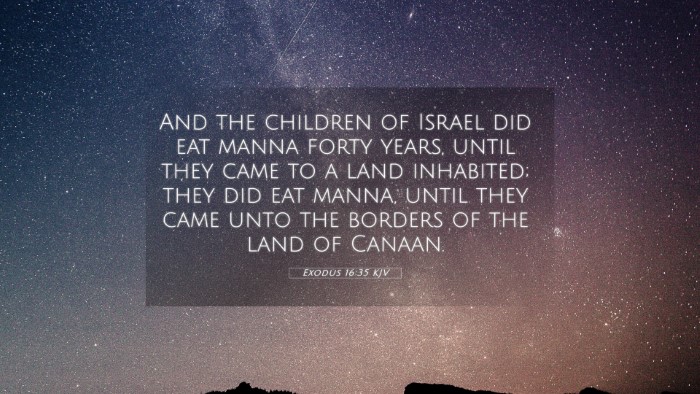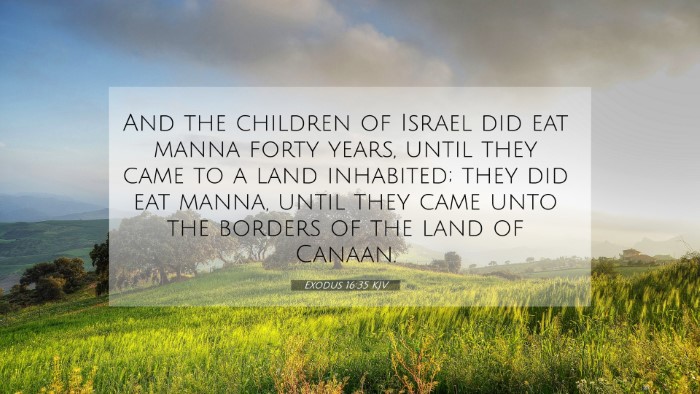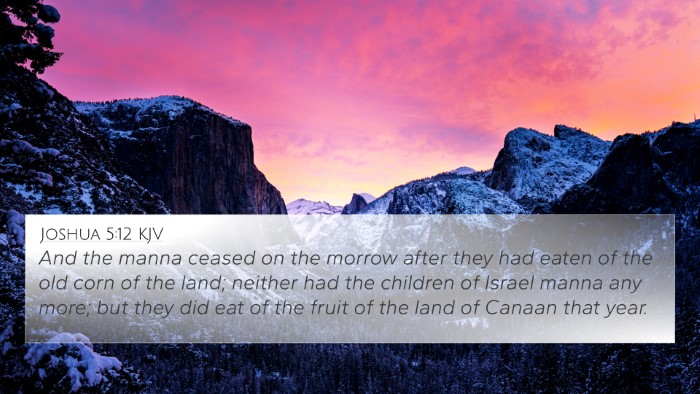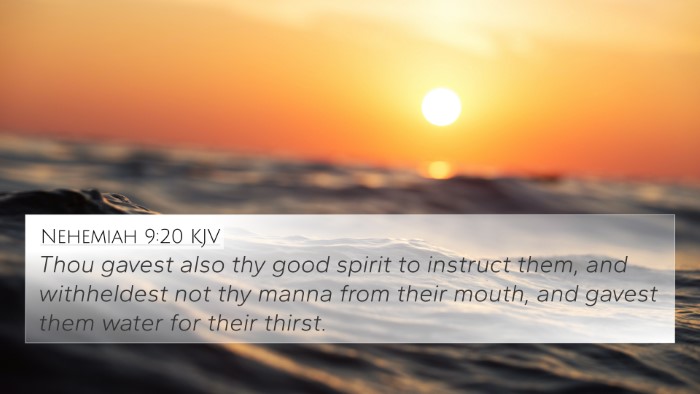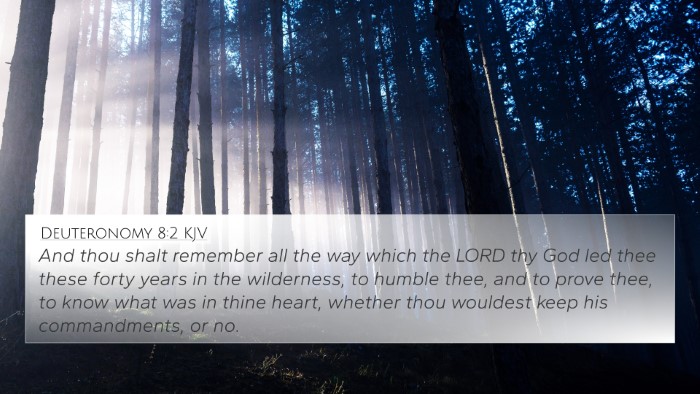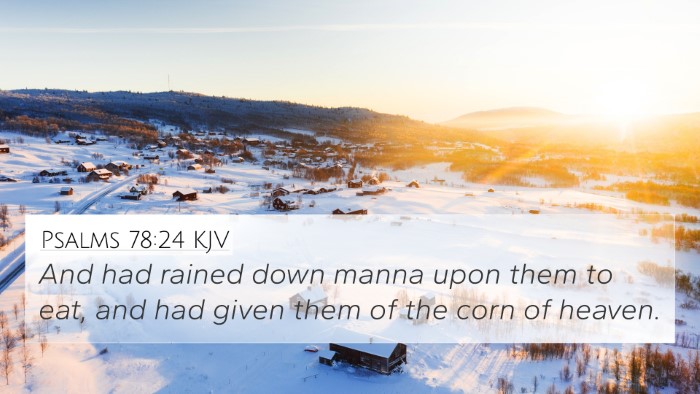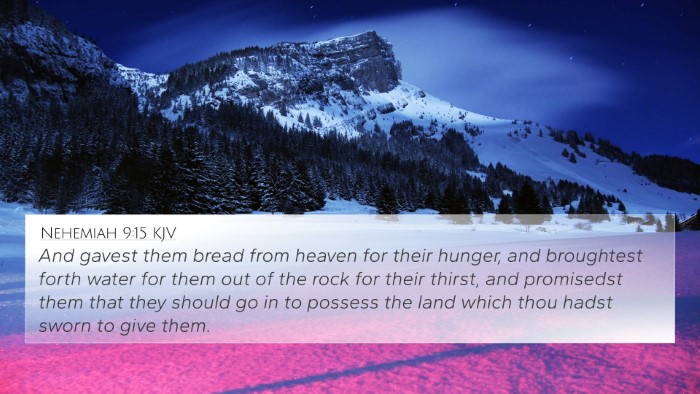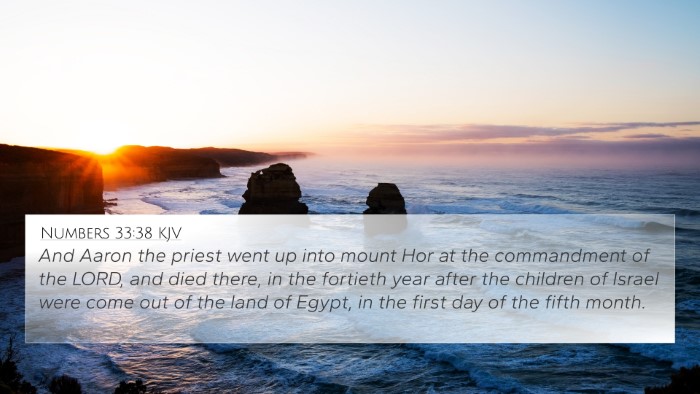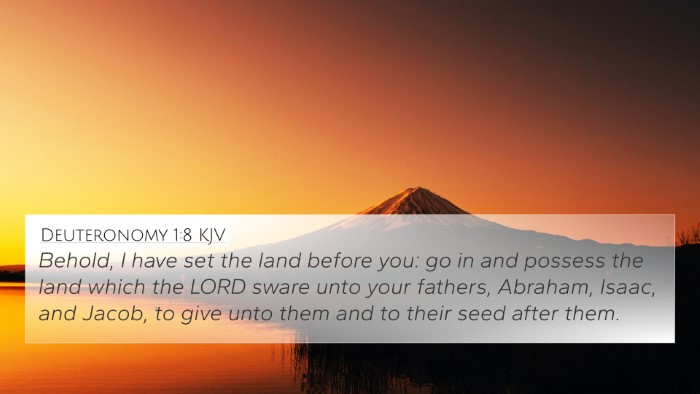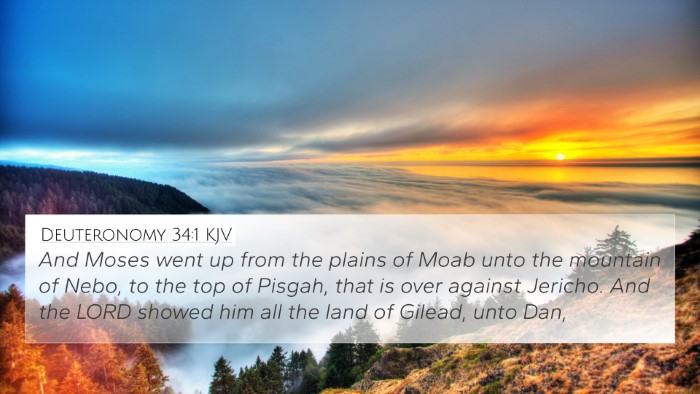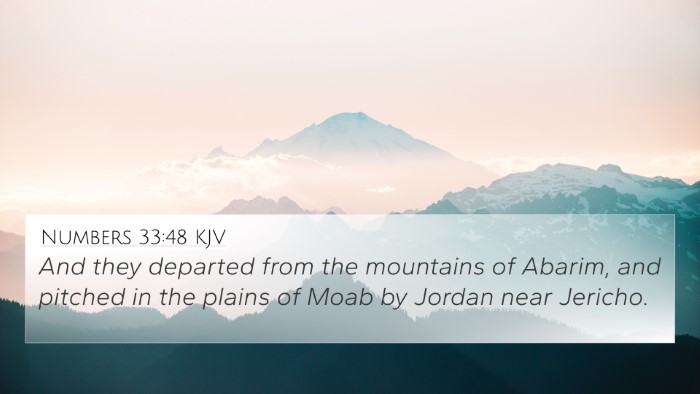Exodus 16:35 - Understanding the Provision of Manna
Exodus 16:35 states, "And the children of Israel did eat manna forty years, until they came to a land inhabited; they did eat manna, until they came unto the borders of the land of Canaan." This verse captures a significant moment in the history of the Israelite journey in the wilderness, emphasizing God's continual provision and faithfulness.
Significance of Manna
The term manna has profound implications for the Israelites' sustenance during their 40-year journey. Lemuel Haynes describes it as both a physical sustenance and a spiritual lesson on reliance upon God.
Albert Barnes highlights that the provision of manna was a sign of God's care and mercy, satisfying the needs of His people in their time of wandering.
Length of Provision
The 40 years mentioned in this verse signifies a complete period of testing and preparation before entering the Promised Land. Matthew Henry points out the importance of this duration as a time for spiritual maturation and dependence on God.
This long period also serves as a historical anchor, reminding future generations of God's enduring promise and faithfulness.
Connecting Thematic Insights from Public Domain Commentaries
- God’s Faithfulness: The endurance of manna highlights God’s unwavering commitment to His people’s needs.
- Trust and Obedience: Adam Clarke emphasizes that the Israelites had to rely on God daily for their nourishment, symbolizing spiritual trust in divine provision.
- Preparation for the Promise: Barnes notes that the sustenance given during their journey was essential for cultivating a mindset of anticipation for the Promised Land.
Cross-References with Exodus 16:35
This verse is rich with connections to various other passages that illuminate its meaning:
- Numbers 11:6: The Israelites lament about the lack of variety in their diet, drawing attention to their dependence on manna.
- Psalm 78:24-25: References God providing manna as "the bread of angels".
- Deuteronomy 8:3: God teaches the children of Israel that man does not live by bread alone, but by every word that comes from His mouth.
- John 6:31-35: Jesus refers to himself as the true bread from heaven, linking back to the manna narrative.
- Matthew 4:4: Jesus quotes Deuteronomy, emphasizing spiritual nourishment over mere physical sustenance.
- Revelation 2:17: Discusses hidden manna and the provision for those who overcome.
- Philippians 4:19: Paul reassures believers that God will supply all their needs, echoing the message of divine provision.
Tools for Understanding and Study
Utilizing tools for Bible cross-referencing can deepen understanding of Exodus 16:35. Consider these resources:
- Bible Concordance: Helps locate specific verses discussing manna.
- Bible Cross-reference Guide: Offers context and related scriptures for comparative analysis.
- Bible Chain References: Tracks themes and connections across the Bible.
Conclusion: Thematic Implications of Exodus 16:35
Exodus 16:35 invites readers to reflect on their own journey of faith, learning to trust in God’s provisions. By employing cross-referencing techniques, one can identify the connections between this verse and the broader narrative of scripture, reinforcing the themes of divine care and guidance.
Additional Study Prompts
As you explore this verse, consider the following:
- What does manna symbolize in your life today?
- How can you apply the lessons of reliance and trust from the Israelites to your faith journey?
- In what ways does God's provision manifest in your daily experiences?

